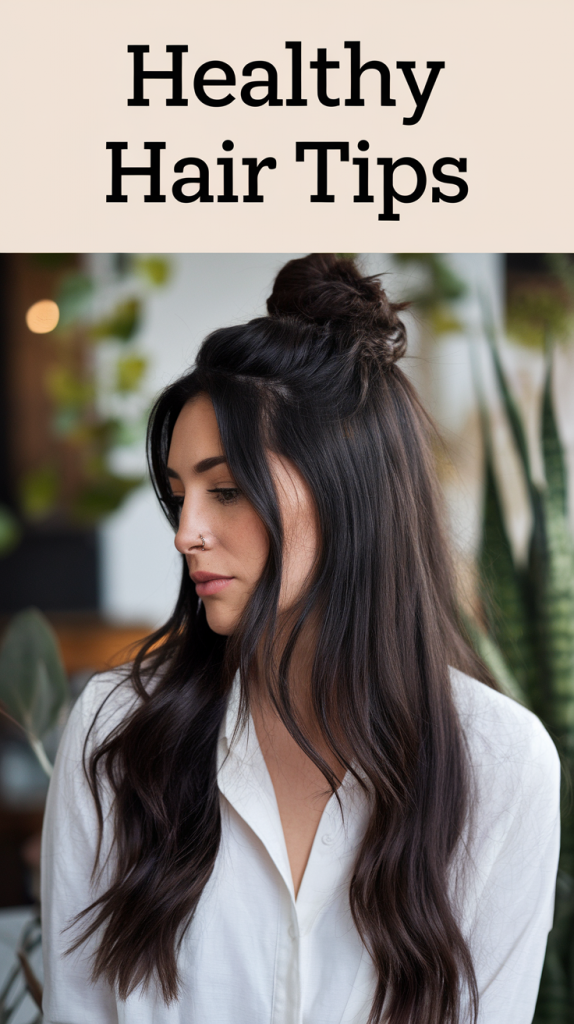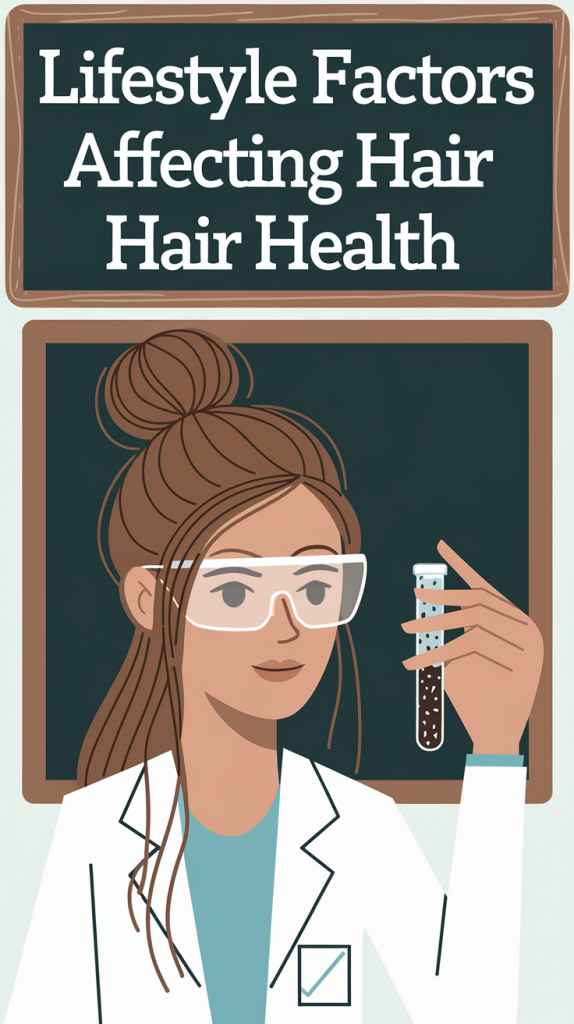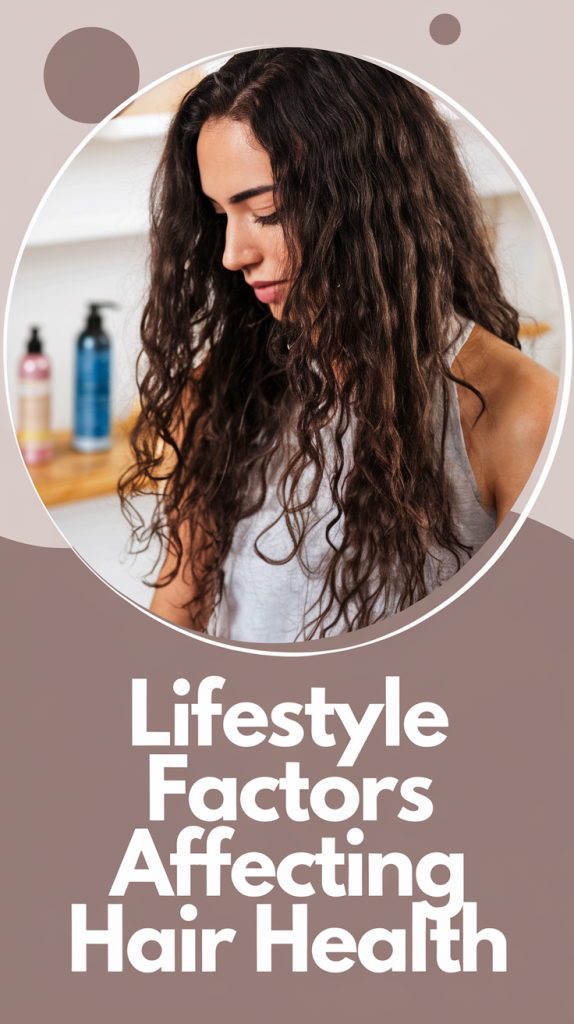Top Healthy Hair Tips for Strong, Shiny, and Resilient Locks
Healthy Hair Tips: Unlock the Secrets to Lustrous Locks
Maintaining healthy, vibrant hair often feels like an elusive goal. Whether you’re battling dryness, breakage, or simply aiming for that enviable shine, understanding the fundamentals of hair care is essential. Drawing from a wealth of expert advice and proven strategies, I’m excited to share my top healthy hair tips that can transform your tresses from dull to dazzling.

Nourish Your Hair from Within
Balanced Diet for Stronger Strands
In my experience, what we eat plays a pivotal role in the health of our hair. A balanced diet rich in vitamins and minerals can significantly enhance hair strength and growth. Here’s how:
| Nutrient | Benefits for Hair | Food Sources |
|---|---|---|
| Protein | Builds keratin, prevents breakage | Lean meats, beans, nuts |
| Iron & Zinc | Prevents hair loss, supports growth | Spinach, lentils, pumpkin seeds |
| Omega-3 Fatty Acids | Promotes scalp health, adds shine | Fatty fish, flaxseeds, walnuts |
| Vitamins A & C | Produces sebum, natural conditioner | Carrots, sweet potatoes, citrus fruits |
| Biotin (Vitamin B7) | Strengthens follicles, promotes growth | Eggs, almonds, avocados |
Hydration is Key
Staying hydrated ensures that your hair remains moisturized from the inside out. I make it a point to drink at least eight glasses of water daily. Additionally, incorporating herbal teas and hydrating foods like cucumbers and watermelon can support your hair’s moisture levels.
Optimal Hair Care Routine
Choosing the Right Shampoo and Conditioner
Selecting products that suit your hair type is crucial. Here’s a quick reference to help you decide:
| Hair Type | Recommended Shampoo Features | Recommended Conditioner Features |
|---|---|---|
| Oily | Clarifying, lightweight formulas | Balancing, non-greasy |
| Dry | Moisturizing, sulfate-free | Rich, hydrating |
| Curly | Sulfate-free, enhancing | Deep conditioning, frizz control |
| Fine | Volumizing, lightweight | Lightweight, volumizing |
| Color-Treated | Color-protecting, gentle cleansing | Sulfate-free, color-preserving |
Proper Washing Techniques
Over-washing can strip your hair of its natural oils, leading to dryness. I find that washing my hair 2-3 times a week strikes the perfect balance. Here are some tips:
- Frequency: Stick to washing 2-3 times a week.
- Temperature: Use lukewarm water to prevent scalp irritation.
- Massage: Gently massaging your scalp can stimulate blood flow, promoting hair growth.
- Technique: Apply shampoo to the scalp and roots, where oil tends to accumulate, and conditioner to the mid-lengths and ends.
Drying and Styling with Care
How you dry and style your hair can make a significant difference in its health:
- Air Drying: Whenever possible, let your hair air dry to minimize heat damage.
- Heat Protection: If I use heat tools, I always apply a heat protectant spray to shield my strands.
- Gentle Handling: Instead of vigorous towel drying, I pat my hair dry with a microfiber towel or a soft cotton T-shirt.
- Limit Heat Styling: Reducing the use of blow dryers, curling irons, and straighteners helps prevent moisture loss and breakage.
Regular Maintenance for Healthier Hair
Trimming to Prevent Split Ends
Regular trims every 6-8 weeks help eliminate split ends and maintain the overall health of your hair. Even if you’re growing your hair out, trimming prevents breakage and keeps your hair looking healthy.
Scalp Care
A healthy scalp is the foundation for healthy hair. Here’s what I do to keep my scalp in top shape:
| Scalp Care Method | Benefits |
|---|---|
| Exfoliation | Removes dead skin cells and product buildup |
| Massage | Enhances circulation, promotes growth |
| Balanced pH | Maintains natural scalp environment |
- Exfoliation: Using a gentle scalp scrub once a month helps remove dead skin cells and product buildup.
- Massage: Regular scalp massages with nourishing oils like coconut or jojoba oil enhance circulation.
- Balanced pH: Maintaining your scalp’s natural pH balance by using pH-balanced shampoos is essential.

Natural Remedies for Enhanced Hair Health
Essential Oils
Incorporating essential oils into your hair care routine can provide numerous benefits:
- Lavender Oil: Promotes hair growth and reduces stress.
- Peppermint Oil: Stimulates the scalp and improves circulation.
- Rosemary Oil: Strengthens hair follicles and prevents premature graying.
- Tea Tree Oil: Combats dandruff and soothes the scalp.
Note: Always dilute essential oils with a carrier oil before application to prevent irritation.
DIY Hair Masks
Treating your hair to natural masks can offer deep nourishment. Here are a few favorites:
| Hair Mask | Ingredients | Benefits |
|---|---|---|
| Avocado and Honey | 1 ripe avocado, 2 tbsp honey | Moisturizes, adds shine |
| Egg and Olive Oil | 1 egg, 2 tbsp olive oil | Strengthens, hydrates |
| Banana and Yogurt | 1 banana, ½ cup yogurt | Adds shine, reduces frizz |
- Avocado and Honey Mask: Mash one ripe avocado with two tablespoons of honey and apply to damp hair for 30 minutes before rinsing.
- Egg and Olive Oil Mask: Mix one egg with two tablespoons of olive oil and apply to hair for 20 minutes before washing.
- Banana and Yogurt Mask: Blend one banana with half a cup of yogurt and apply for 25 minutes before rinsing.
Protecting Your Hair from Environmental Damage
Sun Protection
Just like your skin, your hair can suffer from sun exposure. I protect my locks by wearing hats or using hair products with UV filters. Prolonged sun exposure can lead to dryness, color fading, and brittleness.
Minimizing Chlorine and Saltwater Exposure
Chlorine and saltwater can dry out your hair, leading to brittleness. Before swimming, I apply a protective leave-in conditioner and rinse my hair thoroughly afterward. Wearing a swim cap provides an additional layer of protection.
Pollution Protection
Environmental pollutants can accumulate on your hair, causing damage and dullness. Using clarifying shampoos once a week removes buildup, and antioxidant-rich hair products help combat free radical damage.
Addressing Common Hair Concerns
Combating Dandruff
Dandruff can be both embarrassing and uncomfortable. To manage it effectively:
- Use Anti-Dandruff Shampoos: Look for active ingredients like zinc pyrithione or ketoconazole.
- Maintain Scalp Moisture: Apply natural oils such as tea tree or coconut oil to soothe the scalp.
- Avoid Harsh Hair Products: Opt for gentle, sulfate-free shampoos to prevent irritation.
Managing Frizzy Hair
Frizz can make even the healthiest hair appear unruly. To tame frizz:
- Deep Conditioning Treatments: Use masks or conditioners rich in hydrating ingredients.
- Limit Heat Styling: Reduce the use of blow dryers and flat irons to prevent moisture loss.
- Use Anti-Frizz Serums: Apply serums or oils to lock in moisture and smooth the hair cuticle.
Preventing Hair Loss
Hair loss can be distressing, but proactive measures can help prevent it:
- Balanced Nutrition: Ensure your diet includes essential vitamins and minerals.
- Gentle Hair Care: Avoid tight hairstyles that pull on the hair follicles.
- Stress Management: Chronic stress can lead to hair loss, so incorporate relaxation techniques.
- Medical Consultation: If experiencing significant hair loss, consult a healthcare professional to rule out underlying conditions.
Dealing with Thinning Hair
Thinning hair can be a concern at any age. Strategies to address it include:
- Use Volumizing Products: Shampoos and conditioners that add volume can make hair appear fuller.
- Scalp Treatments: Products containing minoxidil can stimulate hair growth.
- Hair Extensions or Thickening Fibers: For immediate aesthetic improvement.
- Healthy Lifestyle: Adequate sleep, balanced diet, and regular exercise support overall hair health.

Lifestyle Factors Affecting Hair Health
Stress Management
High stress levels can lead to hair loss and hinder hair growth by disrupting the hair growth cycle. I find that managing stress through techniques like meditation, yoga, exercise, and adequate sleep is crucial for maintaining healthy hair.
Adequate Sleep
Sleep is essential for the body’s repair processes, including hair growth. Aim for 7-9 hours of quality sleep each night to support hair health.
Regular Exercise
Exercise improves blood circulation, including to the scalp, which can promote hair growth and overall hair health. Incorporate regular physical activity into your routine to reap these benefits.
Avoiding Smoking and Excessive Alcohol
Smoking and excessive alcohol consumption can negatively impact hair health by reducing blood flow to the scalp and depleting essential nutrients. Limiting these habits can contribute to healthier hair.
Conclusion
Achieving and maintaining healthy hair is a journey that involves attentive care, a balanced diet, and mindful styling practices. By incorporating these tips into your daily routine, you can enjoy stronger, shinier, and more resilient hair. Remember, consistency is key—small, sustained efforts yield the best results.
Ready to transform your hair health? Start implementing these tips today and experience the difference for yourself!
Frequently Asked Questions
1. How often should I wash my hair for optimal health?
Washing your hair 2-3 times a week is generally recommended. This frequency helps maintain natural oils without causing buildup or dryness.
2. Can a poor diet affect my hair health?
Absolutely. A balanced diet rich in proteins, vitamins, and minerals is essential for strong and healthy hair. Nutrient deficiencies can lead to hair thinning and loss.
3. What are the best natural oils for hair growth?
Essential oils like rosemary, peppermint, and lavender are known to promote hair growth by stimulating the scalp and improving circulation.
4. Is it necessary to use conditioner every time I wash my hair?
Using conditioner after every shampoo helps replenish moisture, detangle strands, and protect against damage, especially for dry or damaged hair types.
5. How can I prevent split ends?
Regular trims every 6-8 weeks, minimizing heat styling, and using nourishing hair products can effectively prevent split ends and maintain hair integrity.
6. What role does scalp health play in hair growth?
A healthy scalp provides a conducive environment for hair follicles to thrive. Proper scalp care, including cleansing and massaging, enhances blood flow and supports hair growth.
7. Are there specific vitamins that promote hair health?
Yes, vitamins such as Biotin (Vitamin B7), Vitamin D, Vitamin E, and Vitamin A are crucial for maintaining healthy hair. They support hair growth, strength, and overall scalp health.
8. How does stress affect my hair?
High stress levels can lead to hair loss and hinder hair growth by disrupting the hair growth cycle. Managing stress through techniques like meditation, exercise, and adequate sleep can promote healthier hair.
9. Can coloring or chemical treatments damage my hair?
Yes, coloring and chemical treatments can weaken the hair shaft, leading to dryness, breakage, and split ends. It’s essential to use protective products and limit the frequency of such treatments.
10. What are the signs of a healthy scalp?
A healthy scalp is typically free from excessive dryness or oiliness, irritation, and visible dandruff. It should feel comfortable and support robust hair growth.
